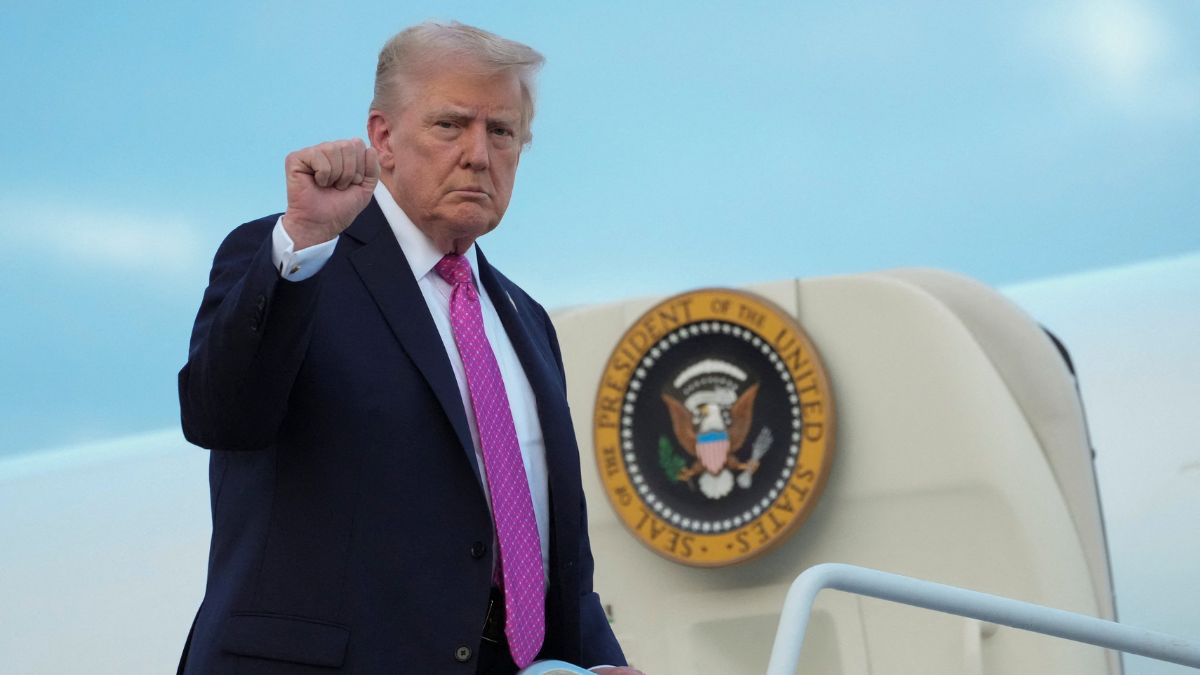In yet another shocking move, US President Donald Trump signed an executive order on Friday that would impose a whopping $100,000 annual fee on H-1B visa applications . The ruling is being seen as a major blow to the US tech industry, which relies heavily on foreign workers from India and China who use this visa to enter and work in the United States.
On Friday, US Commerce Secretary Howard Lutnick said that “all the big companies” had been briefed on the new fee before the executive order was signed. “A hundred thousand dollars a year for H-1B visas, and all of the big companies are on board. We’ve spoken to them,” Lutnick said at an Oval Office event with the US president.
“If you’re going to train somebody, you’re going to train one of the recent graduates from one of the great universities across our land. Train Americans. Stop bringing in people to take our jobs,” he furthered. Trump’s wrath against H-1B visas has always been a flashpoint for the tech industry.
More than any other sector in the United States, tech giants rely heavily on H-1B visa holders. The US government figures show that roughly two-thirds of jobs secured through the H-1B program are computer-related. But employers also use the visa to bring in engineers, educators and healthcare workers.
Why it matters
In just the first half of 2025, Amazon had more than 10,000 H-1B visas approved, while Microsoft and Meta Platforms had more than 5,000 approvals each. The H-1B program in the United States offers 65,000 visas annually to employers bringing in temporary foreign workers in specialised fields, with another 20,000 visas for workers with advanced degrees.
In the past, critics of the program argued that the visa allows firms to suppress wages and sideline Americans who could do the same jobs. Meanwhile, supporters, including Tesla CEO Elon Musk , said that the visa brings in highly skilled workers essential to filling talent gaps and keeping firms competitive. Interestingly, the South African-born billionaire himself once held an H-1B visa.
Adding new fees “creates disincentive to attract the world’s smartest talent to the US”, Deedy Das, partner at venture capital firm Menlo Ventures, wrote on X. “If the US ceases to attract the best talent, it drastically reduces its ability to innovate and grow the economy.” The new fee is expected to significantly increase the cost for companies, particularly smaller tech firms and startups.
Impact Shorts
More Shorts“Either the person is very valuable to the company and America, or they are going to depart and the company is going to hire an American,” Lutnick said at the briefing. “And that’s the point of immigration. Hire Americans and make sure the people coming in are the top, top people. Stop the nonsense.” Meanwhile, immigration experts are now questioning whether the executive branch of the US government has the power to impose the exorbitant annual fee.
Aaron Reichlin-Melnick, senior fellow at the American Immigration Council, wrote on Bluesky: “The president has literally zero legal authority to impose a $100,000 fee on visas. None. Zip. Zilch. The only authority Congress has ever given the executive branch here is to charge fees to recover the cost of processing the application.”
It is important to note that under the current system, H-1B applicants pay a small fee to enter a lottery and, if selected, subsequent fees that can amount to several thousand dollars, depending on the case. Nearly all the visa fees have to be paid by employers, and H-1B visas are usually approved for a period of three to six years.
)